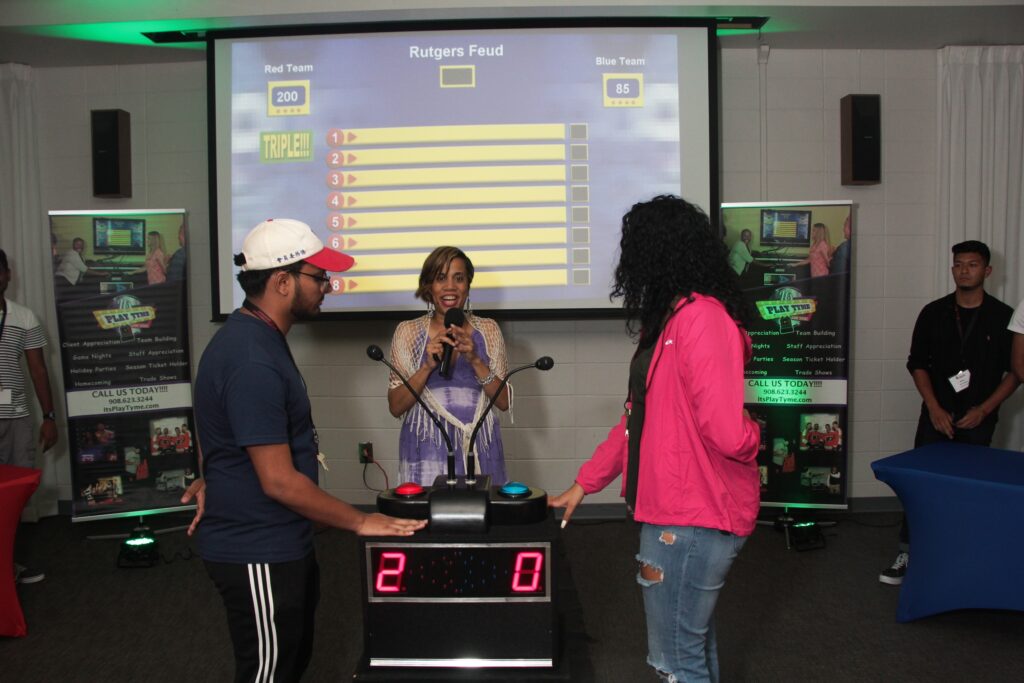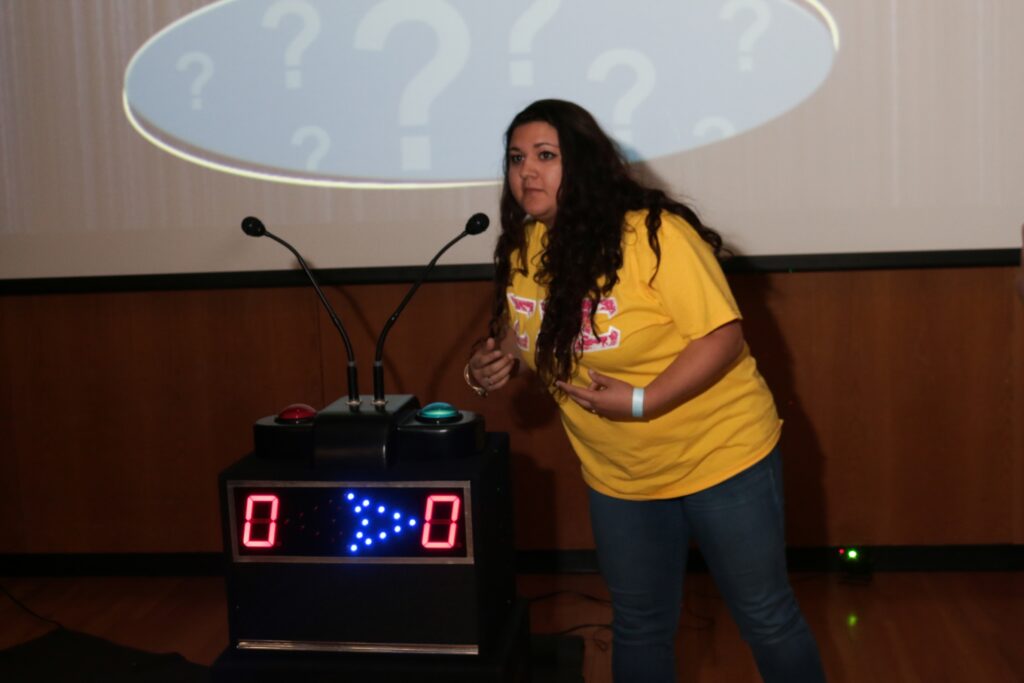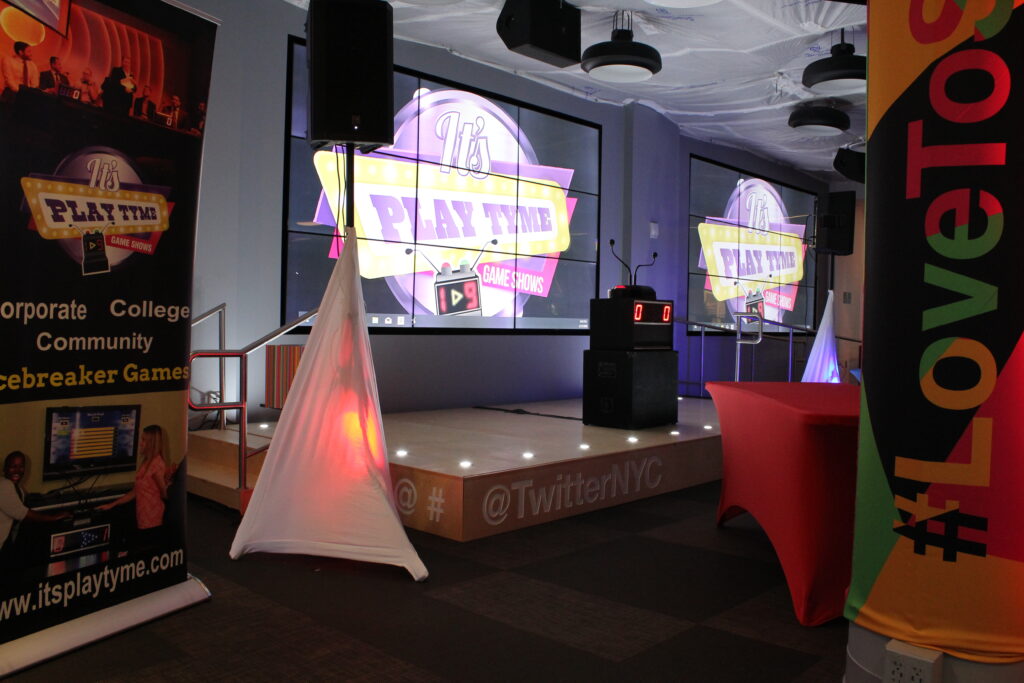Welcome Week is a pivotal time for new students as they transition into college life. It’s a week filled with activities designed to help students acclimate to their new environment, meet new friends, and start their college journey on a positive note.
Among these activities, game shows play a significant role in making Welcome Week both memorable and engaging.
Importance of Welcome Week
Welcome Week is essential for setting the tone for the academic year. It helps new students feel welcomed, reduces the initial anxiety of starting college, and fosters a sense of belonging within the campus community.
Role of Game Shows in Welcome Week
Game shows during Welcome Week serve as ice-breakers and create opportunities for students to interact in a fun and relaxed setting.
They are designed to encourage participation, foster teamwork, and build lasting connections among new students.
Objectives of Welcome Week Game Shows
The primary objectives of Welcome Week game shows are:
- To break the ice and help students get to know each other.
- To encourage active participation and engagement.
- To create a sense of community and belonging.
- To enhance problem-solving and teamwork skills among students.
Book a Live Interactive Game Show!
Call us today. TV Style Game Shows for groups are our specialty. Let's Play!
Types of Welcome Week Game Shows
Trivia Game Shows
Trivia game shows are a popular choice, allowing students to showcase their knowledge on various topics while interacting with their peers.
Interactive Challenges
These include physical and mental challenges that require teamwork and collaboration, promoting bonding among participants.
Talent Shows
Talent shows provide a platform for students to display their unique skills and talents, fostering a supportive and appreciative campus culture.
Team-Building Games
These games focus on building trust, cooperation, and effective communication among students through fun and engaging activities.
Benefits of Welcome Week Game Shows
Ice-Breaking and Networking
Game shows are excellent ice-breakers, helping students overcome initial shyness and start building their social networks.
Encouraging Participation and Engagement
Interactive and competitive elements of game shows encourage students to actively participate, making them feel more involved in campus life.
Building a Sense of Community
By working together in teams, students develop a sense of community and camaraderie, which is crucial for their overall college experience.
Enhancing Problem-Solving and Teamwork Skills
Game shows often involve challenges that require problem-solving and teamwork, helping students develop essential life skills.
Planning and Organizing Welcome Week Game Shows
Initial Planning Steps
Start by defining the goals and objectives of the game shows. Determine the target audience, and brainstorm ideas that align with the interests and needs of new students.
Budget Considerations
Prepare a budget that covers all aspects of the event, including venue rental, equipment, prizes, and promotional materials.
Venue Selection
Choose a venue that is easily accessible, spacious, and equipped with the necessary facilities for hosting game shows.
Equipment and Technology Needs
Ensure you have all the required equipment, such as microphones, projectors, screens, and sound systems. Check the technology setup in advance to avoid any glitches during the event.
Scheduling and Time Management
Plan a detailed schedule that includes time for setup, execution, and teardown. Allocate specific time slots for each game show to ensure a smooth flow of activities.
Steps to Promoting the Game Shows
Create a Buzz on Social Media
Leverage social media platforms to create excitement and buzz around the game shows. Use engaging posts, teasers, and countdowns to attract students’ attention.
Engaging New Students with Pre-Event Activities
Organize pre-event activities, such as online quizzes or challenges, to engage new students and build anticipation for the game shows.
Utilizing Campus Resources for Promotion
Collaborate with campus organizations, student unions, and residence halls to spread the word about the game shows and encourage participation.

minute to win it games
Executing the Live Game Shows
Setting Up the Venue
Ensure the venue is set up according to the plan, with all equipment and seating arrangements in place. Test all technical components to ensure they are functioning correctly.
Managing the Event Flow
Coordinate with hosts, presenters, and volunteers to manage the event flow. Ensure that each segment of the game show runs smoothly and on time.
Engaging Hosts and Presenters
Select dynamic and engaging hosts who can keep the energy levels high and interact effectively with the audience.
Ensuring Participant Comfort and Safety
Prioritize the comfort and safety of participants by providing adequate seating, refreshments, and clear instructions for each activity.
Book a Live Interactive Game Show!
Call us today. TV Style Game Shows for groups are our specialty. Let's Play!
Popular Themes for Welcome Week Game Shows
Pop Culture and Media
Game shows themed around popular culture and media resonate well with students and can include trivia on movies, music, and TV shows.
Academic and Campus Life
Focus on topics related to academics and campus life to help students learn more about their new environment in a fun way.
Sports and Recreation
Incorporate sports-themed challenges and quizzes to engage students who have an interest in athletics and recreation.
Cultural Diversity and Inclusion
Highlight the cultural diversity of the campus by including games and activities that celebrate different cultures and traditions.
Interactive Elements to Include
a) Live Polls and Quizzes
Use live polls and quizzes to engage the audience and gather real-time feedback during the game shows.
b) Audience Participation Games
Involve the audience in interactive games and challenges to keep them engaged and make the event more dynamic.
c) Multimedia Integration
Integrate multimedia elements, such as videos and music, to enhance the overall experience and keep the audience entertained.
d) Prizes and Incentives
Offer prizes and incentives to motivate participation and reward students for their efforts and achievements.

Game Show Mania
Case Studies of Successful Welcome Week Game Shows
1 – University A: Building Friendships through Trivia
University A successfully used trivia game shows to foster friendships among new students, creating a vibrant and connected campus community.
2 – University B: Enhancing Campus Life with Talent Shows
University B’s talent shows highlighted the diverse talents of its students, contributing to a supportive and inclusive campus culture.
3 – University C: Promoting Diversity with Cultural Game Nights
University C organized cultural game nights that celebrated diversity, helping students appreciate different cultures and build a more inclusive community.
Challenges and Solutions
Common Challenges in Organizing Game Shows
Organizing game shows can present challenges, such as technical issues, participant coordination, and maintaining engagement.
Solutions and Best Practices
Address these challenges by planning meticulously, conducting rehearsals, and having contingency plans in place.
Handling Unexpected Situations
Be prepared to handle unexpected situations, such as equipment failures or participant no-shows, with quick thinking and adaptability.
Feedback and Evaluation
1 – Collecting Participant Feedback
Gather feedback from participants through surveys or feedback forms to understand their experiences and gather suggestions for improvement.
2 – Analyzing Event Success
Analyze the feedback and other metrics, such as attendance and engagement levels, to assess the success of the game shows.
3 – Implementing Improvements for Future Events
Use the insights gained from feedback and evaluation to make necessary improvements and enhance future Welcome Week game shows.

Comedy Game Shows
Conclusion
Welcome Week game shows are a dynamic and effective way to welcome new students, fostering friendships, and building a sense of community.
These engaging activities not only break the ice but also encourage active participation and teamwork. By carefully planning, promoting, and executing these events, colleges can create memorable experiences that help students feel connected and excited about their new journey.
Incorporating diverse themes and interactive elements ensures everyone feels included and valued. As colleges continue to innovate and adapt, Welcome Week game shows will remain a cornerstone of student engagement and community building.












